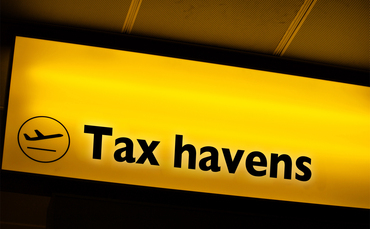Income Tax
IRS missing more offshore taxes than it’s collecting
In a recently released report to Congress, the U.S. Government Accountability Office (GAO) says that while the IRS has collected billions of dollars from offshore tax evasion, it may be missing even more.
May. 03, 2013

In a recently released report to Congress, the U.S. Government Accountability Office (GAO) says that while the IRS has collected billions of dollars from offshore tax evasion, it may be missing even more.
“This report doesn’t bode well for people who have filed quiet disclosures,” said tax litigation attorney Dennis Brager, about the technique taxpayers use to quietly disclose off-shore financial accounts by amending previous years’ tax returns without explicitly contacting the IRS’ Criminal Investigation arm.
“The GAO report identifies large numbers of quiet disclosures,” said Brager, a California Tax Specialist and former IRS Senior Tax Attorney, “where the taxpayers have gone undetected. If the IRS uncovers these quiet disclosures, the taxpayers could pay more taxes, penalties and interest than if they had participated in an IRS disclosure program.”
Specifically, the GAO examined the 2009 Offshore Voluntary Disclosure Program (OVDP). The offshore programs attract taxpayers by offering a reduced risk of criminal prosecution and potentially lower penalties than if the unreported income was discovered by one of IRS’s other enforcement programs.
In the OVDP, most program participants received the typical offshore penalty — 20 percent of the highest aggregate values of the accounts during the period under review. In 2009 OVDP, the median account balance of more than 10,000 closed cases was $570,000. Cases with offshore assets greater than $5 million represented about 6 percent of all 2009 OVDP cases, but accounted for almost half of all offshore penalties. Taxpayers disclosed a variety of reasons for having offshore accounts, and more than half of them had offshore bank accounts at Swiss bank UBS.
The IRS has detected some taxpayers with previously undisclosed offshore accounts attempting to “circumvent” paying the taxes, interest, and penalties that would otherwise be owed, but based on GAO reviews of data, the IRS may be missing other taxpayers. GAO analyzed amended returns filed for tax year 2003 through tax year 2008, matched them to other information available to the IRS about taxpayers’ possible offshore activities and found many more potential quiet disclosures than the IRS detected.
“This report points out that it will probably become more dangerous and risky for individuals not to enter the IRS’ current OVDP,” concludes Brager. “Still, given the high price of entering OVDP, everyone with an offshore bank account should consult with a knowledgeable tax attorney to determine if OVDP is a good fit.”
Dennis Brager is the founder of the Los Angeles-based Brager Tax Law Group, a tax litigation and tax controversy law firm, which represents clients with civil and criminal tax problems and tax disputes with the IRS, the California Franchise Tax Board (FTB), the State Board of Equalization (SBE) and the Employment Development Department (EDD). All of the firm’s tax lawyers were former trial attorneys with the IRS.
